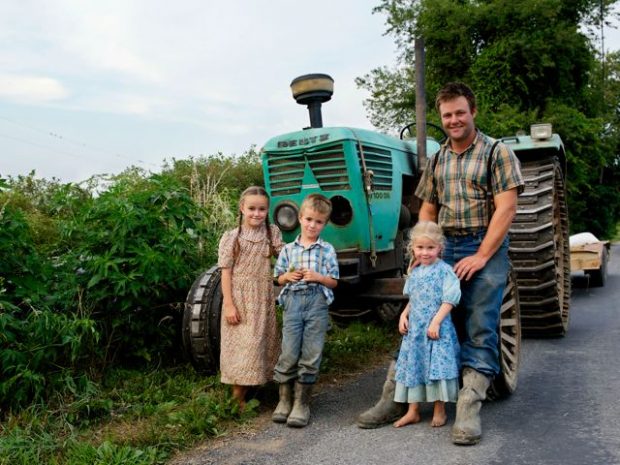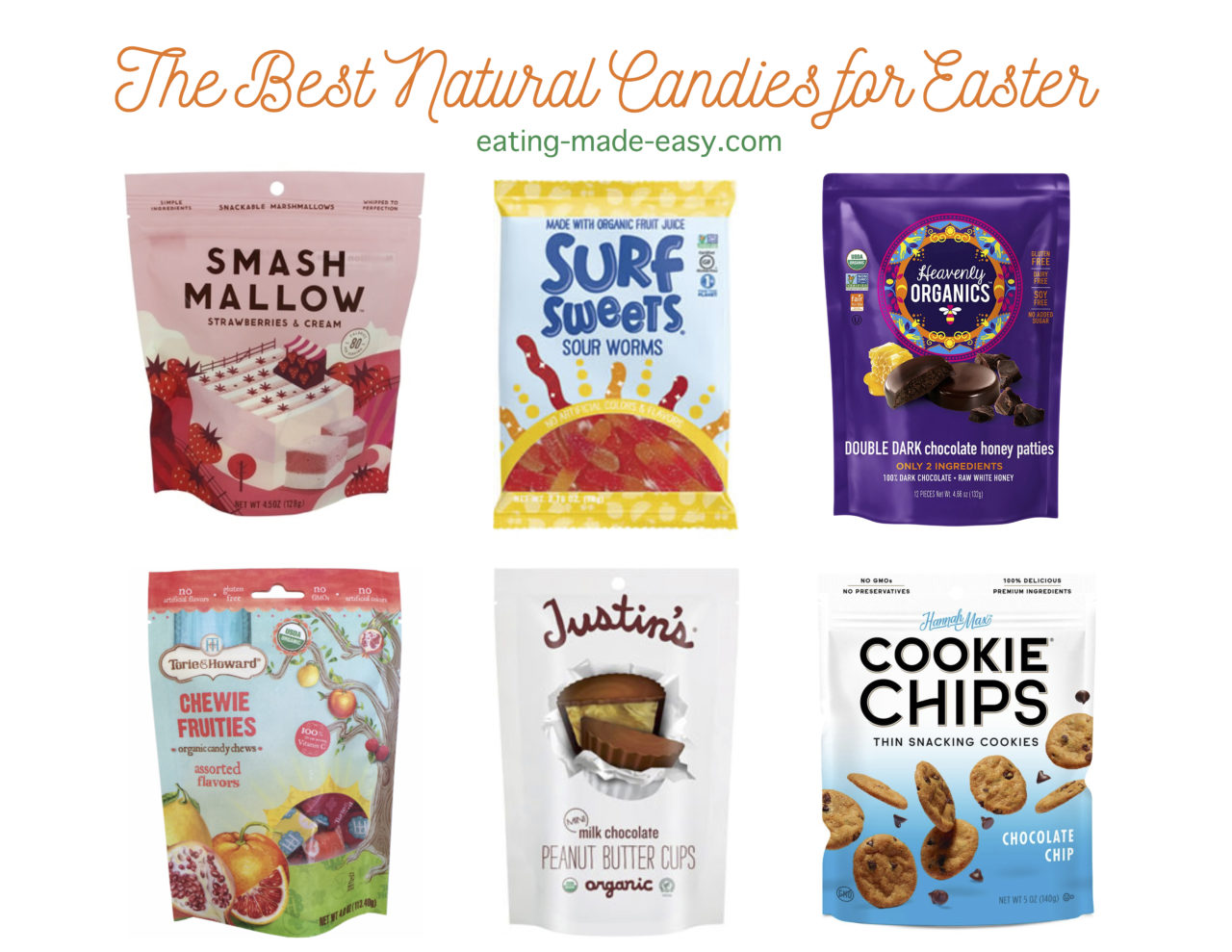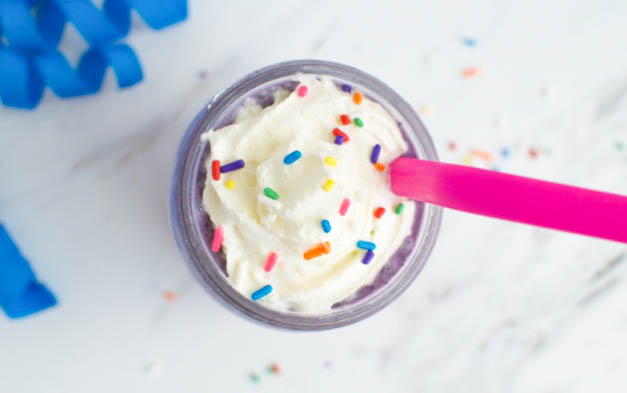By supporting these twelve companies, you are generating less waste, protecting land and workers, and ensuring better food for your family.

James Burkholder, Organic Dairy Farmer for Organic Valley, with his children
Thinking about climate change and environmental destruction can be downright overwhelming. Seems like everyday we’re hearing bad news: environmental agencies being de-funded, more natural disasters due to rising temperatures, and impending doom about where our planet is headed.
Before you run away and hide, I have a few pieces of good news.
- Small changes to your daily habits do make a difference.
- Some of the solutions to climate change lie within buying decisions we make everyday, especially with food.
- Many companies are actively working not only to reduce their own impact, but also to fund efforts and establish programs that help reverse damage and encourage sustainability.
Today I wanted to highlight some of the brands I know of who are actively working to preserve the planet – and not just for good PR – but because they believe it’s an essential role for any business, and necessary for human survival.
These brands are revolutionizing the way food is grown, produced, served, stored, used up, and repurposed – yet you can find them in your regular grocery store. Buying their products is not only good for your family, it’s a step taken to preserve human life on earth.
12 Sustainable Food Companies Helping to Reverse Climate Change
- Lundberg Family Farms. Lundberg’s commitment to sustainable farming dates back to 1937, when they began growing rice in a way that supports healthy air, soil, water, and ecosystem as a whole. Their founder’s motto is “Leave the land better than you found it.” Enough said.
- Organic Valley. Organic pastures not only provide grazing cattle with their natural diet (which minimizes their impact on our air quality, reduces the need for antibiotics, and supports healthier land), they also actually absorb carbon from the atmosphere. Organic Valley farmers are dedicated to keeping their cows on pasture as much as possible, and caring for their land in a way that sustains life for all members of the ecosystem.
- Nature’s Path. Two of Nature’s Path’s three facilities have achieved Zero Waste Certification, which means nearly all of their waste is reused, recycled or composted. They’re also committed to conserving water, becoming carbon neutral, and improving the environmental quality in their surrounding community and beyond. 100% of what they produce is organic.
- Stonyfield. Since 1983, Stonyfield has been committed to producing yogurt sustainably. They help conventional dairy farmers convert to organic, fund a training program for the next generation of organic dairy farmers, and recently became a Certified B Corporation. Stonyfield also donates an impressive 10% of profits to environmental causes.
- New Belgium. A Certified Zero Waste business, this bigtime craft brewer diverts 99.9% of it’s waste from landfills. They are also committed to reducing carbon emissions (both direct and indirect), improving water quality, and constantly working to make every part of their business even more sustainable. New Belgium has ranked high on B Corporation’s “Best for the Environment” list each of the last three years.
- Patagonia Provisions. They say it best: “our foods are the products of forward-thinking farmers, ranchers and fishermen who embrace growing methods that regenerate and restore our resources, rather than depleting them. It’s a partnership with nature that results in delicious, high-quality products while simultaneously shaping a more responsible, farsighted approach to our global food system.” Find their products online.
- Preserve. They don’t make food, but they do make super durable, reusable plates, bowls, cups, and flatware that will assist you in eating food. And all their products are made from recycled #5 plastic (think yogurt cups) – which has diverted a huge amount of waste from landfills since they began. When you’re Preserve products finally wear out (yet to happen to mine) – you can mail them in and they’ll repurpose them yet again.
- Seventh Generation. For 28 years, Seventh Generation has been creating effective, non-toxic products for the home. Their commitment to preserving the planet runs so deep, it’s hard to sum up in a few sentences. So let’s just say their kitchen and laundry products will clean any food mess your household creates, while also improving the health and environmental outlook of future generations.
- Back to the Roots. The two young founders of Back to the Roots set out to “undo food,” as a means of supporting people, farmers and the land. Their cereals are made from just a few ingredients that they source directly from organic, biodynamic farmers – and they’ll soon replace sugary conventional cereals in thousands of New York City public schools breakfast programs.
- Barnana. Food waste is not just a waste of food, it’s a waste of precious energy and significant contributor to climate change. Barnana saw that organic banana farmers were losing 20% of their yield because the bananas didn’t look “perfect” and created a product out of those otherwise wasted bananas. It’s a win-win for both these farming communities and the planet.
- One Degree Foods. All of One Degree Foods’ ingredients are entirely traceable to the farm where they were grown. The company uses only plant-based ingredients grown on sustainable, organic farms that protect the soil, water and land – and they are committed to reversing climate change through a better food system.
- Justin’s. Bees are responsible for 1 in 3 bites of food that we eat – including almonds and honey – both ingredients in Justin’s nut butters. Yet honeybee colonies are disappearing at a rate of about 40% per year, which means that California beekeepers only have a quarter of the bees they need to pollinate their crops. Justin’s is actively working to save the bees, which will in turn help save our food supply and preserve life for both plants and animals.






3 Comments
Marina
April 23, 2017 at 6:10 pmHey Amelia! I’ve always wanted to try Justin’s nut butters because their flavors look so good, but I don’t like that they use palm oil. Most of the peanut butters or other nut butters I use contain only the nut + salt. What is your opinion on that?
Amelia Winslow
April 24, 2017 at 12:07 pmHi Marina,
I hear you! I agree – the most ideal product, nutritionally and from a processing standpoint – contains just nuts & salt. And I do largely buy products with that simple ingredient list. But if you’re the type to keep a few nut butters on-hand at once, and like to have a few more treat-like or unique flavors, I do recommend Justin’s. As far as I know, they use sustainably farmed palm oil – but I just reached out to ask them so we can be sure. Will let you know when I hear back!
Marina
April 26, 2017 at 4:16 pmThanks so much, Amelia!!